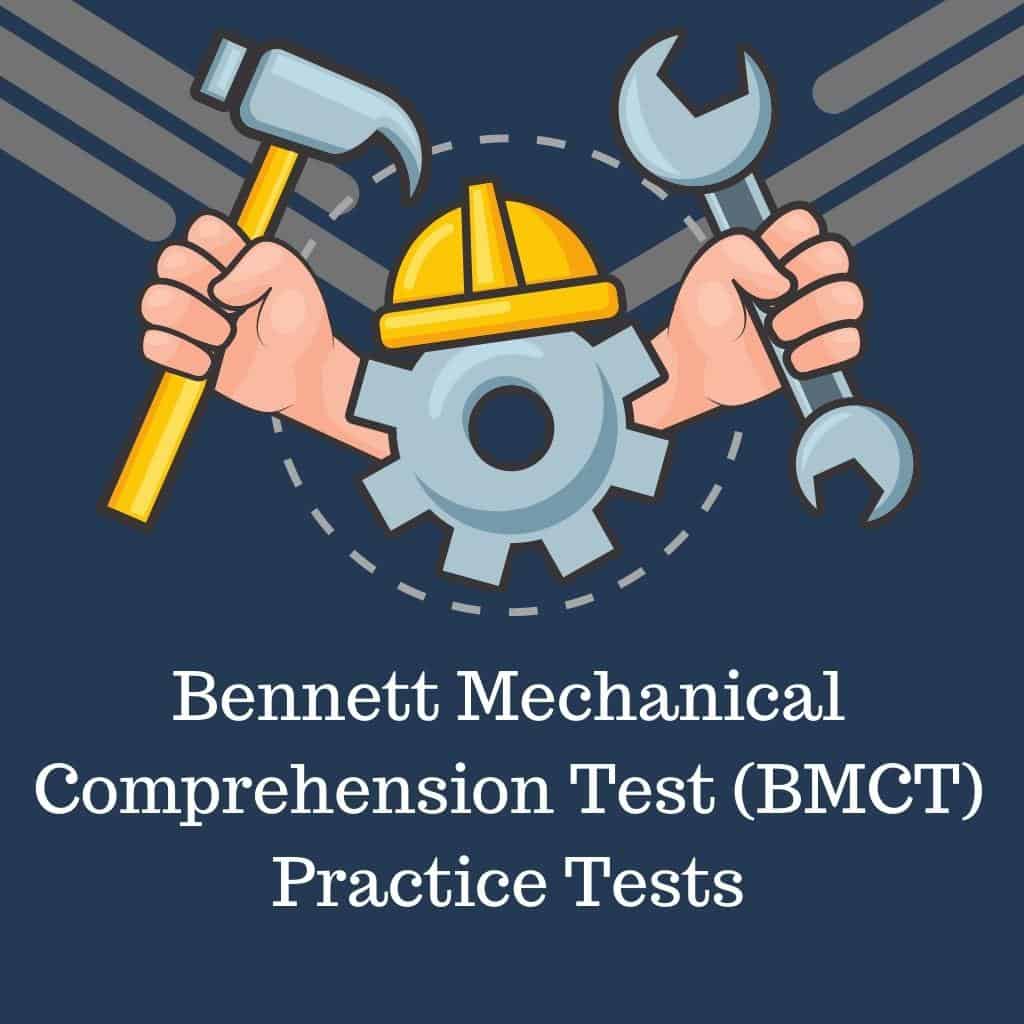Welcome to the Guide to Passing the Mechanical Tools Test! This guide is designed to provide you with the essential information, tips, and resources to help you prepare for and pass the Mechanical Tools Test, opening up new opportunities for you in the field of mechanical engineering and related industries.
The Mechanical Tools Test is a specialized assessment that focuses on your ability to understand, use, and troubleshoot various mechanical tools, as well as interpret technical drawings and adhere to industry standards. By successfully passing this test, you demonstrate your proficiency in using these tools and your readiness to work in a professional environment. This can lead to better job prospects, higher salaries, and increased credibility in your field.
It's important to note that the Mechanical Tools Test is different from the Mechanical Aptitude Test. While the Mechanical Aptitude Test measures your innate ability to understand and apply basic mechanical concepts, the Mechanical Tools Test is more focused on your practical skills and knowledge of specific tools used in the industry.
Our goal with this guide is to help you gain the confidence and knowledge needed to pass the Mechanical Tools Test on your first attempt. Think of this guide as your mentor, providing you with all the insights and support you need to ace the test.
Let's get started on your journey to success!
Understanding the Mechanical Tools Test
The Mechanical Tools Test is a comprehensive assessment designed to evaluate your practical knowledge and skills related to using, maintaining, and troubleshooting various mechanical tools. It also tests your ability to interpret technical drawings and adhere to relevant industry standards. This test is often required by employers in the mechanical engineering and related fields to ensure that their employees possess the necessary competencies to perform their jobs safely and effectively.
Test format and duration of the Mechanical Tools Test
The Mechanical Tools Test typically consists of multiple-choice questions that cover both theoretical and practical aspects of mechanical tools. You may be asked to identify specific tools, their uses, and the correct procedures for using them. Some questions may also involve interpreting technical drawings, schematics, or blueprints, as well as identifying potential safety hazards or maintenance issues.
The test usually contains between 60 to 100 questions, depending on the specific version and the administering organization. You will be given a set amount of time to complete the test, generally ranging from 90 to 120 minutes. It's essential to practice time management to ensure that you can answer all questions within the allotted time.
Scoring and interpretation of results
The scoring system for the Mechanical Tools Test varies depending on the administering organization. In most cases, the test is scored on a percentage basis, with each question having equal weight. You will receive one point for each correct answer, and there is typically no penalty for incorrect answers. The passing score also varies, but it is usually around 70% or higher.
After completing the test, you will receive a detailed score report that breaks down your performance in each of the tested areas. This can help you identify your strengths and areas for improvement, which is particularly useful if you need to retake the test.
Topics covered on the Mechanical Tools Test
The Mechanical Tools Test covers a wide range of topics related to mechanical tools, including but not limited to:
- Types of mechanical tools and their applications: You will need to be familiar with various hand tools (e.g., wrenches, pliers, screwdrivers) and power tools (e.g., drills, saws, grinders) used in the industry, as well as their specific applications and functions.
- Safety practices when using mechanical tools: Understanding the proper safety procedures and personal protective equipment (PPE) required for using different tools is crucial to prevent accidents and injuries.
- Maintenance and troubleshooting of mechanical tools: You will be expected to know how to perform basic maintenance tasks, such as cleaning, lubricating, and inspecting tools, as well as identify common problems and apply appropriate troubleshooting techniques.
Essential Knowledge for Mechanical Tools Test
Introduction to mechanical tools
Mechanical tools are the backbone of various industries, including automotive, manufacturing, construction, and maintenance. These tools enable professionals to carry out tasks more efficiently and accurately. As you prepare for the Mechanical Tools Test, it's crucial to familiarize yourself with the basic concepts and principles of mechanical tools, as well as their specific functions and applications.
Types of mechanical tools and their applications
There are numerous mechanical tools that you need to be familiar with for the test. They can be broadly categorized into two main groups: hand tools and power tools.
Hand tools:
- Wrenches: Used for tightening or loosening nuts and bolts, with various types such as combination wrenches, adjustable wrenches, and socket wrenches.
- Pliers: Designed to grip, cut, or bend materials, with different types like needle-nose pliers, diagonal cutting pliers, and locking pliers.
- Screwdrivers: Used to tighten or loosen screws, available in different types like flathead, Phillips, Torx, and Robertson.
- Hammers: Employed for striking, nailing, or removing nails, with types such as claw hammers, ball-peen hammers, and sledgehammers.
Power tools:
- Drills: Utilized for drilling holes or driving screws into various materials, including cordless and corded versions.
- Saws: Used for cutting different materials, with types like circular saws, reciprocating saws, and jigsaws.
- Grinders: Employed for grinding, cutting, or polishing materials, with types like angle grinders, bench grinders, and die grinders.
Safety practices when using mechanical tools
Safety is paramount when using mechanical tools, as improper handling can lead to injuries or accidents. Here are some essential safety practices to remember:
- Always wear appropriate personal protective equipment (PPE) such as safety glasses, gloves, and hearing protection.
- Inspect tools before use to ensure they are in good condition and functioning correctly.
- Use the right tool for the job and avoid improvising with inappropriate tools.
- Follow the manufacturer's guidelines and recommendations for using and maintaining tools.
- Keep your workspace clean and organized to prevent accidents or injuries.
- Disconnect power tools from the power source when not in use or during maintenance tasks.
Maintenance and troubleshooting of mechanical tools
Proper maintenance and troubleshooting of mechanical tools are vital for ensuring their longevity and performance. Here are some key maintenance and troubleshooting tips:
- Regularly clean tools to remove dirt, grease, or debris that could affect their functionality.
- Lubricate moving parts as needed to prevent excessive wear and ensure smooth operation.
- Inspect tools for signs of damage, wear, or malfunction, and replace or repair parts as necessary.
- Store tools in a clean, dry place to prevent rust and corrosion.
- Learn to identify common issues with tools, such as loose or worn parts, and address them promptly.
By mastering these essential knowledge areas, you will be well-prepared for the Mechanical Tools Test and more confident in your ability to demonstrate your proficiency with mechanical tools.
Conclusion
Congratulations on reaching the end! We hope this guide has provided you with valuable insights, strategies, and resources to help you successfully prepare for and pass the Mechanical Tools Test.
To recap, we've covered the following key areas:
- Understanding the Mechanical Tools Test: We discussed the test format, duration, scoring system, and the topics covered to give you a clear picture of what to expect during the assessment.
- Essential Knowledge for the Mechanical Tools Test: We delved into critical topics, including the introduction to mechanical tools, types of mechanical tools and their applications, safety practices, and maintenance and troubleshooting of mechanical tools.
By now, you should have a solid understanding of the test and the essential knowledge required to excel in it. As you continue your preparation, remember to stay focused, disciplined, and consistent in your efforts. Don't be afraid to ask for help, whether from peers, instructors, or online forums, as collaboration can offer new perspectives and valuable insights.
Lastly, believe in yourself and your abilities. With the right mindset, dedication, and perseverance, you can achieve your goal of passing the Mechanical Tools Test and unlocking new opportunities in your career.
Good luck on your journey to success!



